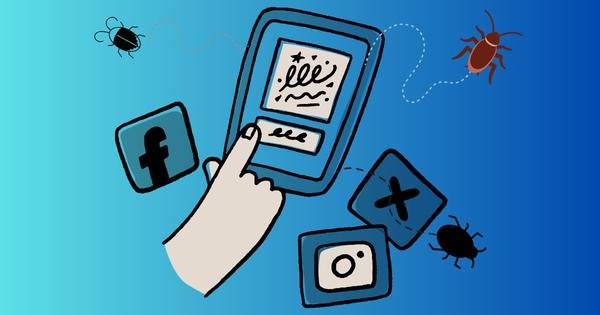Understanding Smartphones: A Modern Parasite

For ages, we’ve dealt with parasites like head lice, fleas, and tapeworms. But today, we face a new kind of parasite. It’s not a bug, but a sleek, shiny device we always carry: the smartphone.
Smartphones do more than help us. They take our time, attention, and personal information. They use these to benefit tech companies and advertisers.
In a recent article in the Australasian Journal of Philosophy, we discuss how smartphones pose unique risks. Seeing them as parasites helps us understand these risks better.
What is a Parasite?
A parasite is a species that benefits from a close relationship with another species, called the host. The host pays a cost for this relationship.
Take the head louse, for example. It needs human blood to survive. If it falls off, it dies unless it finds another human. In return, we get an itchy scalp.
Smartphones have changed our lives. They help us navigate cities and manage health conditions like diabetes. We rarely leave home without them.
But despite their benefits, many of us are addicted. We can’t stop scrolling. This addiction costs us sleep, weakens our relationships, and affects our mood.
From Mutualism to Parasitism
Not all close species relationships are bad. Some are beneficial, like the bacteria in our guts. They help us digest food and boost our immunity. This win-win relationship is called mutualism.
The human-smartphone relationship started as a mutualism. Phones helped us stay in touch, navigate, and find information. Philosophers saw them as an extension of our minds, like notebooks and maps.
But this relationship has changed. In nature, a mutualist can become a parasite, or vice versa. We believe smartphones have become parasites.
Smartphones as Parasites
Smartphones are now almost indispensable. But many popular apps serve the interests of companies and advertisers more than they serve us.
These apps are designed to keep us scrolling and clicking on ads. They use our data to exploit us further. Your phone only cares about your fitness goals or family time if it can use this info to grab your attention.
So, it’s useful to think of users and their phones as hosts and parasites.
This view helps us see where this relationship might go next. It also helps us think about how to fight back against these high-tech parasites.
Policing the Parasite
On the Great Barrier Reef, bluestreak cleaner wrasse clean larger fish. This is a mutualism. The larger fish lose parasites, and the wrasse get food.
Sometimes, the wrasse cheat and nip their hosts. The larger fish then punish them by chasing them away. This policing keeps the mutualism in balance.
Can we police our smartphones to restore a beneficial relationship?
Evolution shows that two things are key:
- Detecting exploitation
- Responding to it
A Difficult Battle
With smartphones, detecting exploitation is hard. Tech companies don’t advertise how they keep you hooked.
Even if you know about the exploitative nature of smartphone apps, responding is difficult. Many of us rely on smartphones for everyday tasks.
We use our phones to:
- Remember facts
- Capture life events
- Find our parked cars
Governments and companies have made us even more dependent by moving services online.
How can we fix this imbalanced relationship? Individual choice isn’t enough. We need collective action.
The Australian government’s under-age social media ban is a start. We also need:
- Restrictions on addictive app features
- Limits on the sale of our personal data
Rachael L Brown is Director of the Centre for Philosophy of the Sciences and Associate Professor of Philosophy, Australian National University.
Rob Brooks is Scientia Professor of Evolution, UNSW Sydney.
This article was first published on The Conversation.



